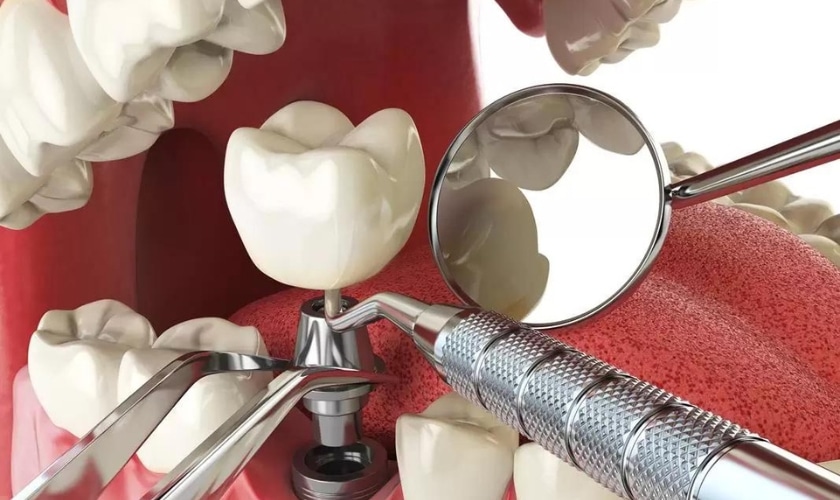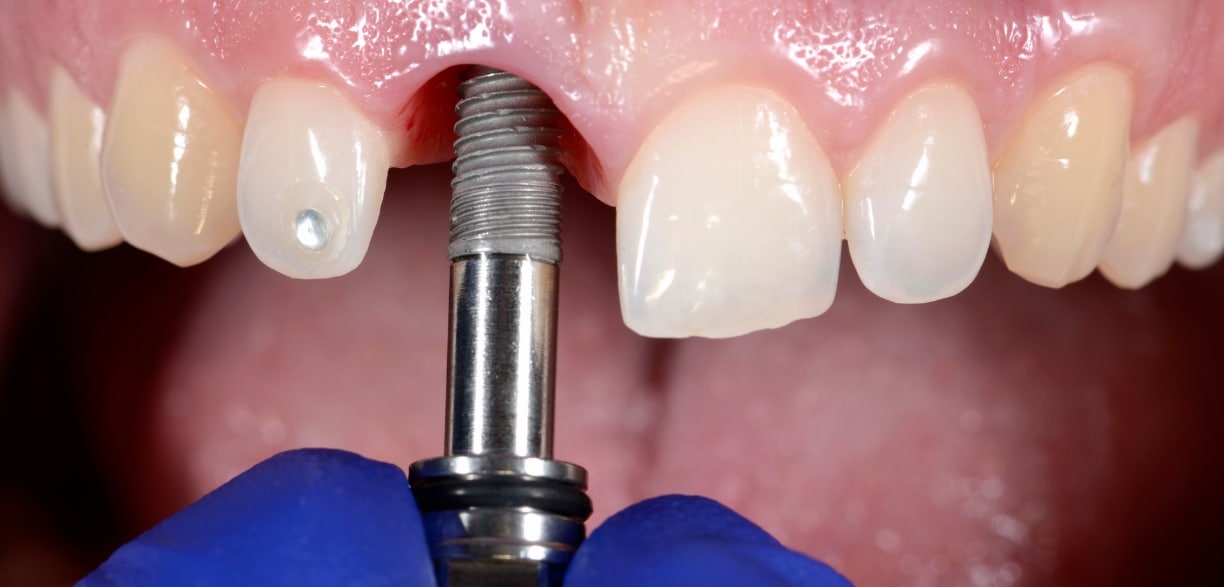
Are you considering getting a dental implant after a tooth extraction? You’ve come to the right place! Understanding the timing and process of dental implant placement is crucial for a successful outcome. In this blog post, we will delve into all the important details, from recovery time after extraction to preparing for implant surgery. So grab your favorite beverage, sit back, and let’s explore how long after tooth extraction implants can be done!
Understanding Tooth Extraction and Dental Implants
Tooth extraction is a common dental procedure in which a damaged or decayed tooth is removed from its socket. This can be due to various reasons, such as severe tooth decay, infection, gum disease, or trauma. While the thought of getting a tooth extracted may seem daunting, it is often necessary to ensure oral health and prevent further complications.
On the other hand, dental implants are an excellent solution for replacing missing teeth. They are titanium posts that are surgically placed into the jawbone, acting as artificial roots for replacement teeth. Implants provide stability and functionality similar to natural teeth, giving you the confidence to smile and chew without any concerns.
The timing between tooth extraction and dental implant placement plays a crucial role in ensuring the successful integration of the implant with your jawbone. It allows sufficient time for proper healing of the extraction site before placing the implant.
Factors such as bone density at the extraction site, overall oral health condition, and individual healing capabilities will determine when you can have an implant after an extraction. Your dentist will evaluate these factors during an initial consultation to create a personalized treatment plan tailored specifically to your needs.
Understanding both tooth extractions and dental implants individually is essential before considering their combined approach. By understanding how these procedures work together harmoniously towards restoring your smile’s beauty and functionality!
Factors to Consider for Timing of Dental Implant After Tooth Extraction
- Timing plays a critical role when it comes to dental implant surgery after tooth extraction. While there is no one-size-fits-all answer, several factors should be considered in determining the appropriate timing.
- One crucial factor is the condition of the extraction site. It takes time for the socket to heal and allow for proper bone formation before an implant can be placed. Generally, it takes about three to six months for this process to occur.
- Another consideration is the patient’s overall health and immune system function. If someone has certain medical conditions or takes medications that affect healing, it may be necessary to wait longer before proceeding with implant placement.
- The presence of infection or gum disease also affects timing. These issues must be resolved before implants can be placed successfully.
- Additionally, the location and type of tooth being replaced influence timing decisions. Front teeth typically require more immediate replacement due to aesthetic concerns, while back teeth may have less urgency.
- Individual factors such as smoking habits and oral hygiene practices can impact healing time and overall success rates of dental implants.
- Consulting with a qualified dentist or oral surgeon will help determine the best timing for your specific situation. Remember that every case is unique, so patience and careful consideration are essential when deciding on dental implant placement after tooth extraction!
Typical Recovery Time After Tooth Extraction
After undergoing a tooth extraction, it is important to give your mouth ample time to heal before proceeding with a dental implant. The recovery time after tooth extraction can vary depending on various factors, such as the complexity of the extraction, your overall health, and how well you take care of yourself during the healing process.
Typically, it takes about one to two weeks for the initial healing of the socket after tooth extraction. During this time, it is normal to experience some discomfort, swelling, and minor bleeding. Your dentist may prescribe pain medications or recommend over-the-counter pain relievers to help manage any discomfort.
To promote proper healing and minimize complications, it’s essential to follow post-operative instructions provided by your dentist or oral surgeon. This may include avoiding strenuous physical activities that could disrupt blood clot formation in the socket and increase the risk of dry socket.
In some cases where there are no underlying issues or complications from the extraction procedure, patients may be able to proceed with dental implant placement within three months after tooth removal. However, every individual case is different and requires an evaluation by a dental professional.
It’s crucial not to rush into getting a dental implant immediately after tooth extraction, as this can interfere with proper healing and integration of the implant into your jawbone. Patience is key in ensuring successful outcomes for both procedures.
Remember that each person’s recovery time can vary based on their unique circumstances. It’s best to consult with your dentist or oral surgeon, who will assess your specific situation and provide appropriate guidance regarding when you can safely proceed with a dental implant following a tooth extraction.
Preparing for Dental Implant Surgery
- Before undergoing dental implant surgery, it is important to adequately prepare yourself. This involves taking certain steps to ensure a smooth and successful procedure.
- It is essential to have a thorough consultation with your dentist or oral surgeon. During this consultation, they will examine your mouth and jawbone to determine if you are a suitable candidate for dental implants. They may also take X-rays or perform other tests to assess the condition of your oral health.
- Once you have been deemed eligible for the procedure, your dentist will provide you with instructions on how to prepare for surgery. This may include guidelines on what medications to avoid before the surgery and whether any dietary restrictions need to be followed in the days leading up to it.
- In some cases, preliminary procedures such as bone grafting or tooth extraction may be necessary before the implant surgery can take place. Your dentist will discuss these options with you and create a treatment plan that best suits your needs.
- Additionally, it is crucial to maintain good oral hygiene habits prior to the surgery. Brushing and flossing regularly can help minimize bacteria in your mouth, reducing the risk of infection after the implant placement.
- Make sure you arrange for proper transportation home after the surgical procedure since anesthesia may leave you feeling groggy or drowsy.
- By following these preparation steps recommended by your dentist or oral surgeon, you can increase the chances of a successful dental implant surgery.
The Procedure and Timeline of Dental Implant Placement
- The procedure for dental implant placement involves several stages and can take several months to complete.
- First, the oral surgeon or dentist will assess your overall oral health and perform any necessary preparatory treatments, such as bone grafting if needed. This is important to ensure that there is enough healthy bone in the jaw to support the implant.
- Once you are ready for implant placement, the surgeon will make a small incision in your gum tissue to expose the underlying bone. A hole will then be drilled into the jawbone, and a titanium screw-like post will be inserted securely into the hole. This post serves as an artificial tooth root.
- After this initial surgery, a healing period of several weeks or even months may be necessary. During this time, osseointegration occurs – when the surrounding bone fuses with the implant post, providing stability and strength.
- Once osseointegration has taken place, an abutment is attached to the implant post. The abutment acts as a connector between the implant and the final restoration (crown). Impressions of your teeth are taken so that a custom-made crown can be fabricated by a dental laboratory.
- Once your crown is ready, it is carefully placed onto the abutment and adjusted for fit and bite alignment. Your dentist will make sure that everything looks natural and functions properly before completing your dental implant treatment.
- Remember that every patient’s timeline may vary depending on their individual circumstances and healing abilities. It’s crucial to consult with your dentist or oral surgeon, who can provide personalized guidance based on your specific needs.
Post-Surgery Care and Follow-up Visits
- After the dental implant surgery, taking proper care of your mouth is crucial for a successful recovery. Your dentist will provide specific instructions tailored to your situation, but here are some general guidelines to follow.
- First and foremost, it’s important to keep the surgical area clean. Gently rinse your mouth with warm saltwater several times a day to promote healing and prevent infection. Avoid brushing the surgical site for at least the first few days after surgery.
- To manage any discomfort or swelling, you can apply ice packs on your face near the surgical area. Take prescribed pain medications as directed by your dentist if necessary.
- In terms of diet, stick to soft foods that require minimal chewing during the initial healing period. This will help protect the surgical site from unnecessary pressure or irritation.
- Regular follow-up visits with your dentist are essential for monitoring progress and ensuring everything is going smoothly. These visits typically occur within a week or two after surgery, allowing your dentist to evaluate healing and make any necessary adjustments.
- During these appointments, X-rays may be taken to assess bone integration around the implant. Your dentist will also check for any signs of infection or complications.
- Remember that every individual’s recovery process is unique, so don’t hesitate to reach out to your dental team if you have any concerns or questions along the way. They are there to support you through this journey towards restoring a healthy smile!
- Stay tuned for more information about choosing an experienced dentist for dental implant placement in our next blog section!
Timing is crucial when it comes to dental implant placement after tooth extraction. While there is no one-size-fits-all answer, several factors need to be considered before determining the appropriate timeline for your specific case.
Understanding the process of tooth extraction and dental implants is essential in making an informed decision. Your dentist or oral surgeon will evaluate various aspects such as bone density, overall health, and healing capacity to recommend the best time for implant surgery.
Typically, a period of three to six months is required for proper healing and jawbone regeneration after tooth extraction. This allows sufficient time for the socket to heal and become suitable for implant placement.
Once you are ready for dental implant surgery, careful preparation becomes vital. X-rays, impressions, and thorough examinations are necessary to ensure that everything goes smoothly during the procedure. Your dentist will also discuss any potential risks or complications with you beforehand.
During the actual implant placement procedure itself, a titanium post is surgically inserted into your jawbone. Over time, this post fuses with your bone tissue through a process called osseointegration. The length of this integration phase can vary from person to person but typically takes around three to six months.
Post-surgery care plays a significant role in ensuring successful results. Following your dentist’s instructions regarding oral hygiene practices and dietary restrictions can help promote proper healing and minimize complications.
Regular follow-up visits are also crucial after dental implant surgery. These appointments allow your dentist or oral surgeon to monitor your progress closely and make any necessary adjustments along the way.
While every patient’s situation may differ slightly based on individual factors, it generally takes between three to six months after tooth extraction before a dental implant can be placed successfully. By considering all relevant factors including recovery timeframes, preparation procedures, surgical timelines, post-operative care requirements,and follow-up visits,you can work towards achieving optimal outcomes from your dental implant treatment journey.



